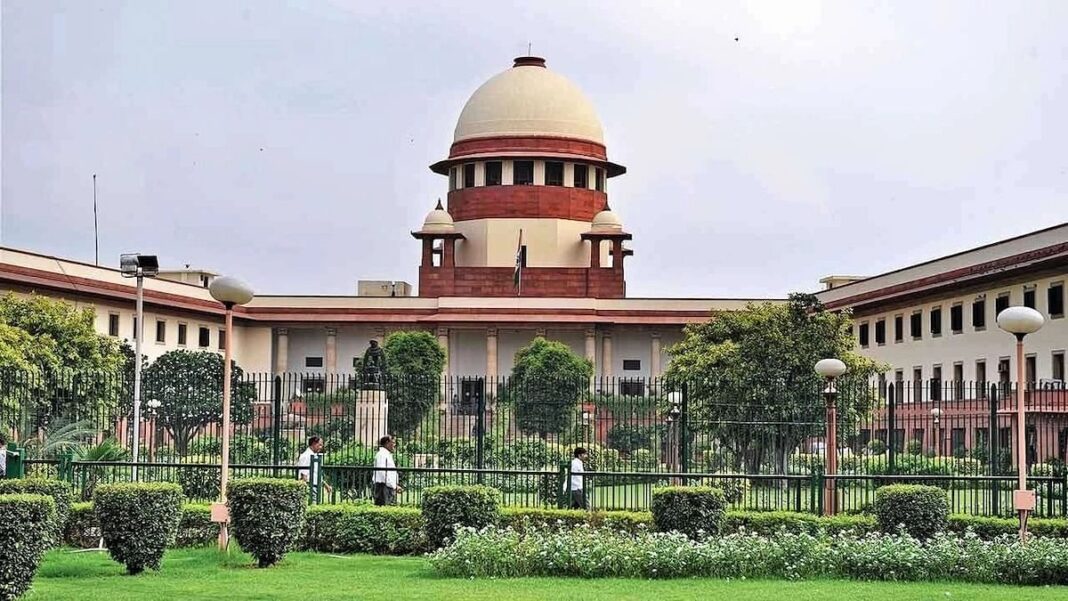Supreme Court judge Justice DY Chandrachud has said that the decriminalisation of Section 377 of IPC by the apex court has enabled queer people to emerge as legally empowered citizens. He said that though the judgement enabled them to demand their rights, rightfully and proudly but still structural changes are needed to ensure positive legal effects for marginalised queer people, who continue to face intersecting oppression. Speaking at IIT-Delhi on the topic of “realising diversity: making difference matter in higher education” on Tuesday, Justice Chandrachud said, “Certain groups of queer people due to their caste and class positions are more susceptible and vulnerable to the abuse of the law, both in terms of symbolic and material harm”.
He said that the much-needed first legal step that the Supreme Court was able to take with the decriminalisation of homosexuality in the Navtej Singh Johar verdict dated September 6, 2018, would not have been possible without the stories and experiences of the petitioners and countless others whom they represented. “Today also marks a special occasion as we get a chance to celebrate the 4th anniversary of the Supreme Court’s judgement in Navtej Singh Johar. While the decriminalisation of Section 377 has enabled queer people to emerge as legally empowered citizens and demand for their rights, rightfully and proudly; structural changes are still needed to ensure that we are able to extend these positive legal effects to marginalised queer people, who continue to face intersecting oppressions”, he said.
Justice Chandrachud recalled that one of the connected petitions named Anwesh Pokkuluri versus Union of India, comprised of a spirited chorus of about 20 students and alumni from various IITs across the country, including IIT-Delhi, representing ‘Pravritti’, a support group for LGBT members of the IIT fraternity. “The youngest petitioner before the Court was actually a young 19-year-old student of IIT-Delhi. By taking a stand before the Court in the Section 377 litigation, students and alumni of IITs helped in building a modern contemporary India, not just by advancing her technical skills, but by taking the country closer to her constitutional values”, he said.
Justice Chandrachud, who is next in line to become Chief Justice of India, said that diversity has intrinsic worth in itself, and furthers our understanding of fairness and social justice. “It was the diverse student population of IITs who with their resilience and fortitude decided to challenge Section 377 in courts. Diversity also leads to positive outcomes in terms of making better scholars, thinkers, and citizens.
Innovation in science occurs when someone has the courage to ask different questions, look at the problem from different perspectives, and gain new insights”, he said. He added that diversity results in innovative thinking and decision-making, and richness in the originality of scholarly thought and learning is impoverished when it happens in groups of like-minded people. “People belonging to different genders, regions, castes and socio-economic backgrounds bring in their own unique experiences, ideas, values, and perspectives to bear on the task at hand by asking new questions and seeking unique solutions.
As Amartya Sen said, we are “diversely different” because of the plurality of our identities, which intersects and cuts across each other”, he said. He referred to the invite he got to speak on the occasion from IIT-Delhi’s Office of Diversity and Inclusion, where lines were quoted from the 2018 Navtej Singh Johar judgement and said what it means for the educational institutions. “In my understanding, what it signifies for all our universities and institutes of higher education is that they must look like the India they represent.
If IIT-Delhi wants to continue to fulfil its vision of contributing to India’s growth through excellence in scientific and technical education and research, of serving as a valuable resource for society, then a diverse, equitable, inclusive, and accessible IIT is needed”, he said. Justice Chandrachud said that as IIT-Delhi celebrates 60 years of existence “this may be an appropriate moment to reflect on the transformative possibility of IITs by looking at the intersection of two long-standing concerns of the state – education and social justice”. He said that on rare occasions when students can cross the structural barriers and struggle against immense odds to enter institutes of higher education, their toughest battle begins inside the institutes of higher education.
An institute that is only diverse but not inclusive imposes additional burdens on students due to their stigmatised identities. Justice Chandrachud added that instances of campus discrimination, micro-aggressions, social exclusion, and feelings of lack of connectedness or support from peers and mentors can all have a pernicious impact on the dignity and mental health of students. “Social justice cannot be restricted to access alone, but substantive inclusion is needed in higher educational institutes which promotes meaningful social and academic interactions with the larger campus community, including professors, administrators, staff and peers,” he said.
.
From: nationalheraldindia
URL: https://www.nationalheraldindia.com/national/structural-changes-needed-to-ensure-positive-effects-reach-marginalised-queer-people-sc-judge



